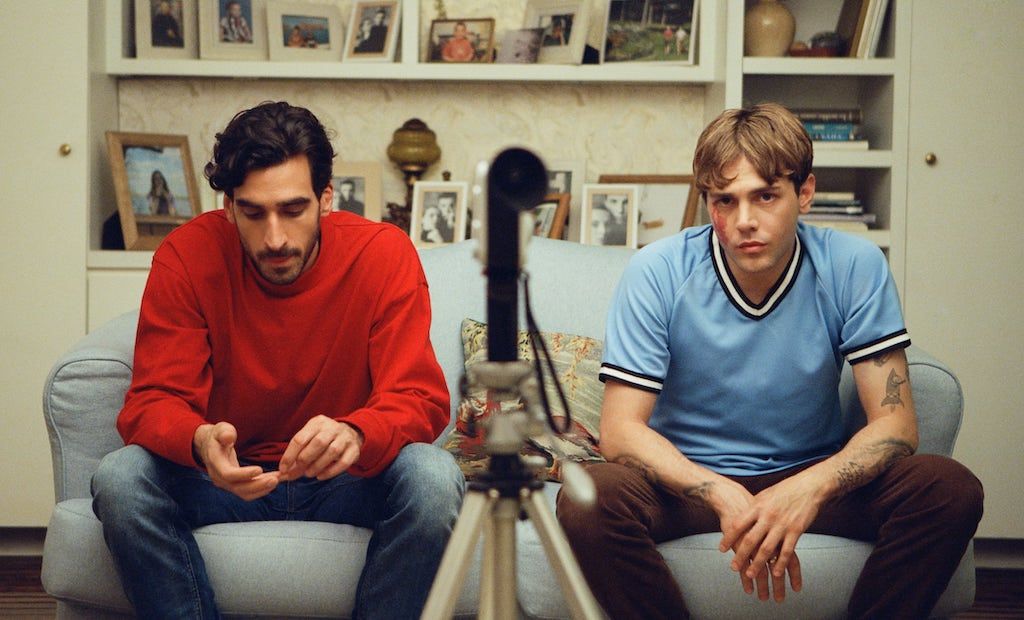Matthias & Maxime: Dolan brings to Cannes a work of force and fierce emotion

Xavier Dolan brings to Cannes a work of force and fierce emotion. It deserves to be earnest. Dolan has crafted a love story predicated on difficulty, rendering the central relationship equal parts platonic and romantic. A contrived moment focuses this tension. The kiss for a short film, at first dismissed as artificial but in fact authentic, becomes the emblematic change for a childhood bond, one that gives way to unspoken desire and baffled frustration.
Matthias (Gabriel D’Almeida Freitas) has aspirations for a big-time professional career. His eye for social mobility catches a billboard promoting daily bread and the nuclear family. His best friend Maxime (Dolan) has a more vulnerable, destructive streak. He struggles with his mother (Anne Dorval), who is depressed and obstinate. A forced temporal device splits the film into chapters that signpost Maxime’s imminent move to Australia, the usual locale for finding oneself, for seeing the world anew.
Maxime’s birthmark or “ink stain” presents an obvious disfigurement, one surface and internal. Phosphorescent’s Song for Zula features as a reprise, suggesting love – as innate as any blemish – disfigures the self. The moment of reflection, materially and emotionally, erases and reconstitutes self-image. When Maxime looks in the mirror, it generates an impossible future. It doesn’t simply look back.
Matthias and Maxime’s relationship is forged through group psychology. Dolan persuasively presents a matey dynamic, one that feels particularly fostered in the French-Canadian suburbs. Their shared pattern is insular, ironic and amused, a product of the slightly secluded, slightly affluent environment. To fall into English speech is to encourage ridicule; to dab in public is to be entitled and unashamed. The supporting cast ably offers distinctions of the young male psyche.
Dolan captures the cacophony of voices in suffocating close-ups, by withdrawing the wide angle. From afar we see disputes and isolations through windows within windows, doorways within doorways. It accumulates into heartrending glimpses, stuttered words and unsatisfying closures. The breakthrough of lust can only happen in a halfway house, an outbuilding covered in tarpaulin.
The limiting and delimiting of intimacy proves futile and intoxicating. Dolan asserts his framing: natural light shot through blinds, silhouettes of wantonness, the raindrops of gay abandon. There is little sincere appeal to rigid sexuality; here it is fluid, a stream through which the characters reconcile the terms of their affection. The ending appears saccharine but retains ambiguity, one of love and friendship existing uneasily, smothered under a smile and a wave.
Joseph Owen
Matthias & Maxime does not have a UK release date yet.
Read more reviews from our Cannes Film Festival 2019 coverage here.
For further information about the event visit the Cannes Film Festival website here.
Watch a clip from Matthias & Maxime here:

























Facebook
Twitter
Instagram
YouTube
RSS